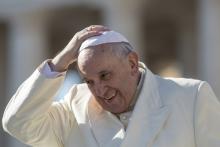Faith


Everywhere we turn, someone or something is vying for our allegiance. Sports teams. Car companies. Television networks. Politicians. Political parties. Flags. Countries. And of course, the church. Many of us will readily admit that Jesus taught our allegiance is to be, first and foremost, to God. That is, until someone steps on our toes and throws our church into the mix. For many, their allegiance to God and their church are so intertwined it's difficult to tell where one ends and the other begins. But what does Jesus have to say about all of this?
From my estimation, God makes it pretty clear that he does not want to vie for our allegiance. Isn't that the whole point of the first commandment? Jump ahead to the New Testament and we find Jesus teaching the same thing. At one point Jesus goes so far as to tell us that our allegiance cannot be divided. Either we will love the one and hate the other, or hate the one and love the other. According to Jesus, serving two masters isn't just difficult, it's impossible. To further illustrate this point, he even turns away a would be disciple. From reading the story, this man seems to have a legitimate concern. All he wants to do is bury his father before taking off to follow in the footsteps of this rabbi. But from Jesus' perspective, his allegiance is divided, so this won't fly.
Today is no different. God doesn't want to vie for our allegiance. Yet he must, because our allegiance is divided between church attendance, theological stances, and denominational commitments (among other things), as if these things take precedence over following Jesus.










Today the world celebrates Pope Francis’ first year. Notice I didn’t say the church is celebrating, but the world. The pope has graced the covers of every magazine from TIME to Rolling Stone over the past year. People all over the world are delighted by the breath of fresh air he has brought. His popularity has moved beyond Catholics to Christians of all kinds, believers from other faith traditions, agnostics, and the “nones,” who are very drawn to this pope who emphasizes love and simple living.
But the pope said last week that he is not a “ superman” and does not want to be a celebrity. He is just trying to talk and live like Jesus, a point he makes repeatedly to shrug off his media darling standing. From the moment he took the name Francis, he made clear his, and thus the church’s priorities: the poor, peace, and the creation. Francis is now challenging the most powerful people and places in the world, as well as a popular culture that mostly asks how we can serve ourselves.
Pope Francis is right: it is not about him; it’s about the Christ he follows. Everything Francis is saying and doing is aimed at pressing this question: Are Christians going to follow Jesus or not? That should be the question on the first anniversary of this new pope. Are we Christians ready and willing to follow Jesus? How can we then serve the world?


The classic sci-fi novel Ender’s Game by Orson Scott Card was adapted on to the big screen in November 2013. The story tells of a brilliant boy, Ender, who trained to battle in a world threatened by a formidable alien race. In the final battle sequence, Ender skillfully devises the perfect strategy, carrying it out ruthlessly to achieve victory against his enemy, effectively wiping out the entirety of the opposing army. Just as the audience exhales from his display of incredible wit and meticulous execution, the chilling plot twist dawns: what Ender assumed to be the final simulation exam was indeed a real, flesh-and-blood battle. Ender had inadvertently committed genocide.
Enraged by having being manipulated into killing, Ender glowers at his commander, the emotion in his voice drenched with the incomprehensible weight of his new realization, he says,
The way we win matters.


IN THE PRESIDENTIAL election in Honduras last November, ruling party candidate Juan Orlando Hernández was declared the winner despite serious irregularities documented by international observers. Violence and intimidation marked the campaign period, including the assassination of at least 18 candidates and activists from Libre, the new left-leaning party.
Hernández, past president of the Honduran National Congress, supported the June 2009 coup. His record of operating outside the rule of law includes bold measures to gain control over the congress, judiciary, military, and electoral authority. He helped establish a new military police force in August 2013, deploying thousands of troops to take over police functions. Hernández ran on a campaign promise to put “a soldier on every corner.”
Honduras has been named the “murder capital of the world,” with relentless violence coming from crime, drug cartels, and police corruption. Attacks on human rights defenders and opposition activists have been brutal and have allegedly involved death squads reminiscent of the 1980s. Those working to reverse poverty and injustice receive death threats, priests and lay leaders among them. They are bracing for even greater repression under Hernández’s administration.
The growing militarization of Honduran society, justified as a way of fighting crime, is fueled by U.S. support for the country’s security forces—forces reportedly involved in widespread human rights violations. By denying the repression against social movements, and congratulating the Honduran government for its supposed progress on human rights, the U.S. Embassy has made it possible for rampant impunity to continue.



